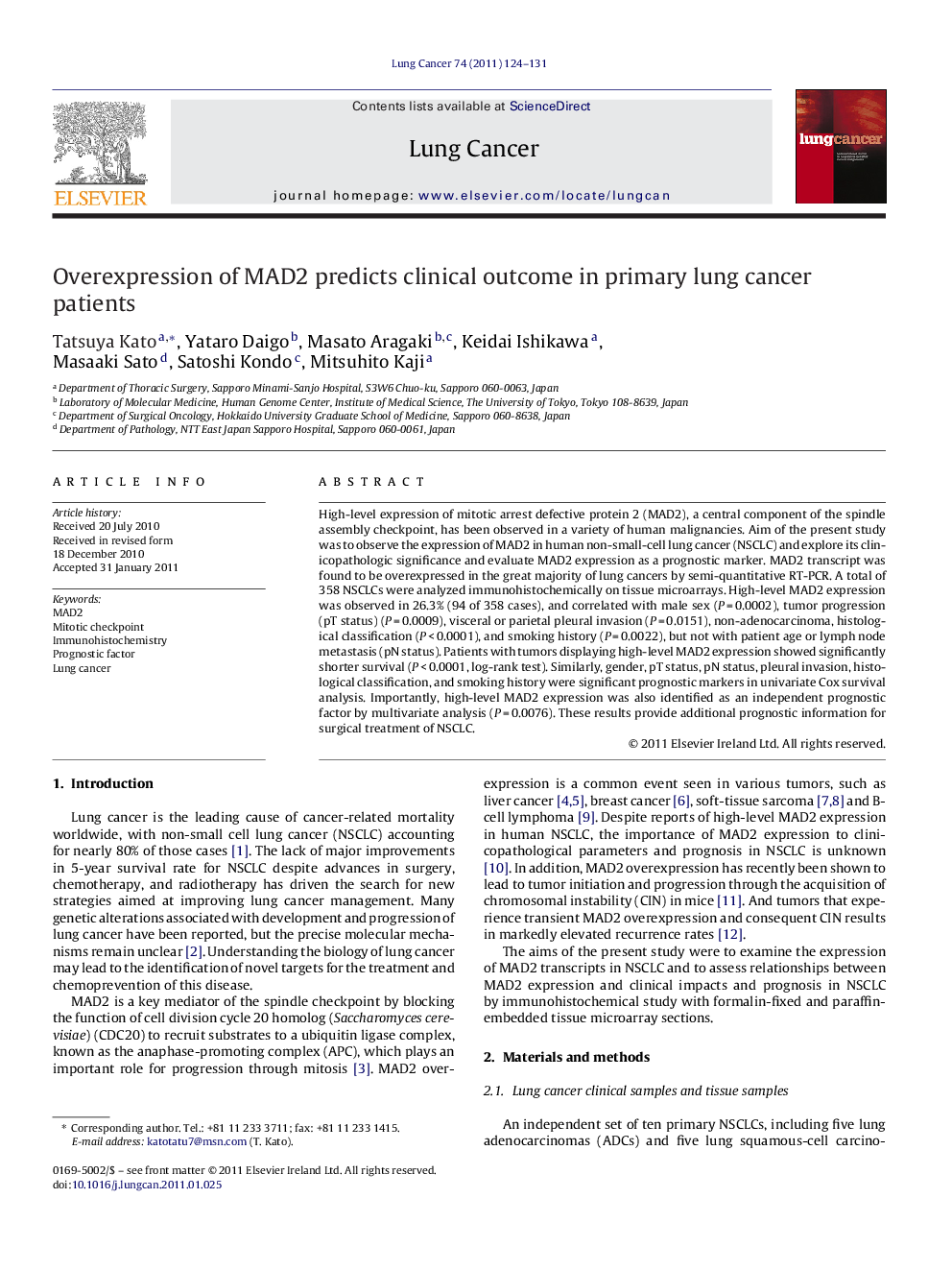| Article ID | Journal | Published Year | Pages | File Type |
|---|---|---|---|---|
| 2141883 | Lung Cancer | 2011 | 8 Pages |
High-level expression of mitotic arrest defective protein 2 (MAD2), a central component of the spindle assembly checkpoint, has been observed in a variety of human malignancies. Aim of the present study was to observe the expression of MAD2 in human non-small-cell lung cancer (NSCLC) and explore its clinicopathologic significance and evaluate MAD2 expression as a prognostic marker. MAD2 transcript was found to be overexpressed in the great majority of lung cancers by semi-quantitative RT-PCR. A total of 358 NSCLCs were analyzed immunohistochemically on tissue microarrays. High-level MAD2 expression was observed in 26.3% (94 of 358 cases), and correlated with male sex (P = 0.0002), tumor progression (pT status) (P = 0.0009), visceral or parietal pleural invasion (P = 0.0151), non-adenocarcinoma, histological classification (P < 0.0001), and smoking history (P = 0.0022), but not with patient age or lymph node metastasis (pN status). Patients with tumors displaying high-level MAD2 expression showed significantly shorter survival (P < 0.0001, log-rank test). Similarly, gender, pT status, pN status, pleural invasion, histological classification, and smoking history were significant prognostic markers in univariate Cox survival analysis. Importantly, high-level MAD2 expression was also identified as an independent prognostic factor by multivariate analysis (P = 0.0076). These results provide additional prognostic information for surgical treatment of NSCLC.
